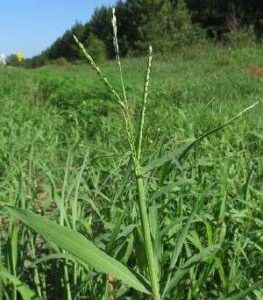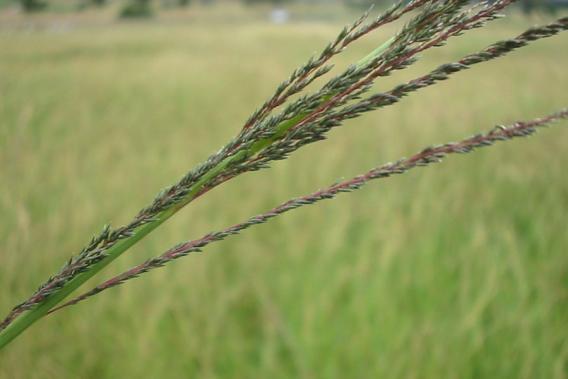The Weed Paradigm
Being a relative newcomer to the immediate Kandanga area, I’ve had to deal with plenty of challenges in the management of our land. Even though I’ve been in the Mary Valley for much longer, and involved in Agriculture all my life, Kandanga Farm’s acidic soils with long histories of “conventional” small crops production, varying topography and even more variable weather have all posed new problems.
One of our biggest issues, if we are focussing on “problems”, is a Weed- a C4 grass that seems to enjoy the worst soils making it highly competitive in depleted, compacted areas.
Don’t get me wrong, this grass has grazing value, and at various times of the year is better than anything else. It can also tolerate the extended dry periods we’ve experienced since moving to Kandanga.
Originating in Africa, this sub-tropical allelopathic Weed, if provided with the right conditions, can form a mono-culture, depleting biodiversity and ultimately soil health.
Worryingly, this pest has also proven to be a health risk to animals with high concentrations of steroidal saponins causing photosensitisation in grazing stock*. In other words – it poisons them.
Although on the “banned” list in other states, here it was introduced to areas in seed mixes marketed by Rural Stores and promoted by Agriculture Departments.
Yes, Urochloa decumbens or Signal Grass really has us concerned! 
Of-course any self-respecting local landholder skimming over this article probably reached the conclusion within a few sentences that this was yet another GRT story. The reality is, give or take some details, we could be talking about any “weed”. Seteria or Bahia, down south- Paramatta Grass, CQ- Pimalea, on creeks- Cat’s Claw, in the bush- Lantana, Salvinia on the dam, Indian Couch in the back yard or Nut Grass in the garden and so it goes on.
The reality is, it’s simply our management that makes the conditions for one plant, animal or ecosystem to thrive and another to be unhealthy. It’s human nature for us to focus on what we don’t want and manage for that. There are industries and careers built around fuelling and capitalising on this “fear”.
Challenging that paradigm: If a Weed is simply a “plant out of place” then in this country we rely on Weeds for almost all our plant-based food, all our non-synthetic clothing, all intensive animal feed, and many building products. We in-fact could not do without them due to their role in pollination. Yes, “weeds” are here to stay and it’s now our perception of them that needs to change!
If you are ready for a more holistic management approach, Farm Store staff are not only Tertiary Qualified in many aspects of food production but are trained in Regenerative Land Management (and most are also practicing regenerative farmers). Focussing on what you do want is a much nicer view so let us help you develop your farm plan without fear and without reliance on cyclical, synthetic inputs. We also do great pasture mixes without Signal Grass!
*Source agric.wa.gov.au
